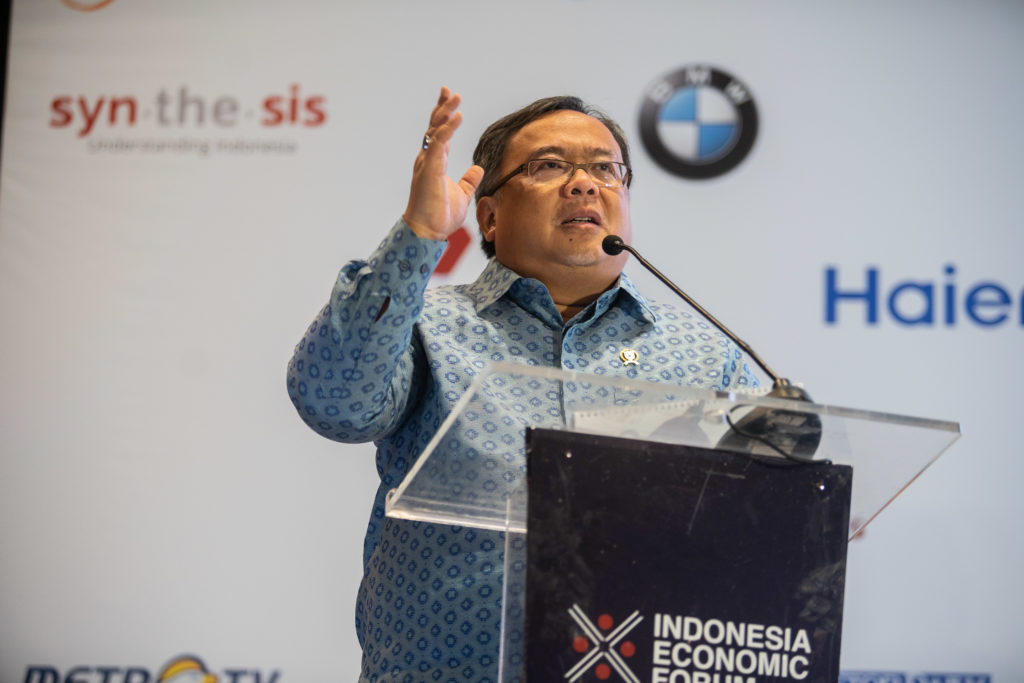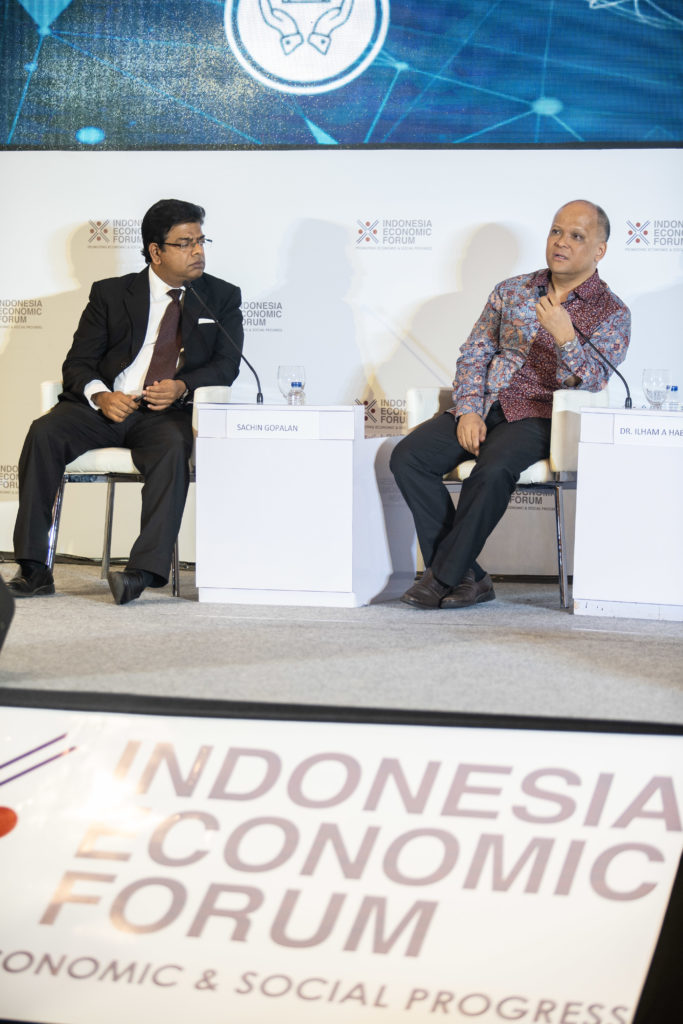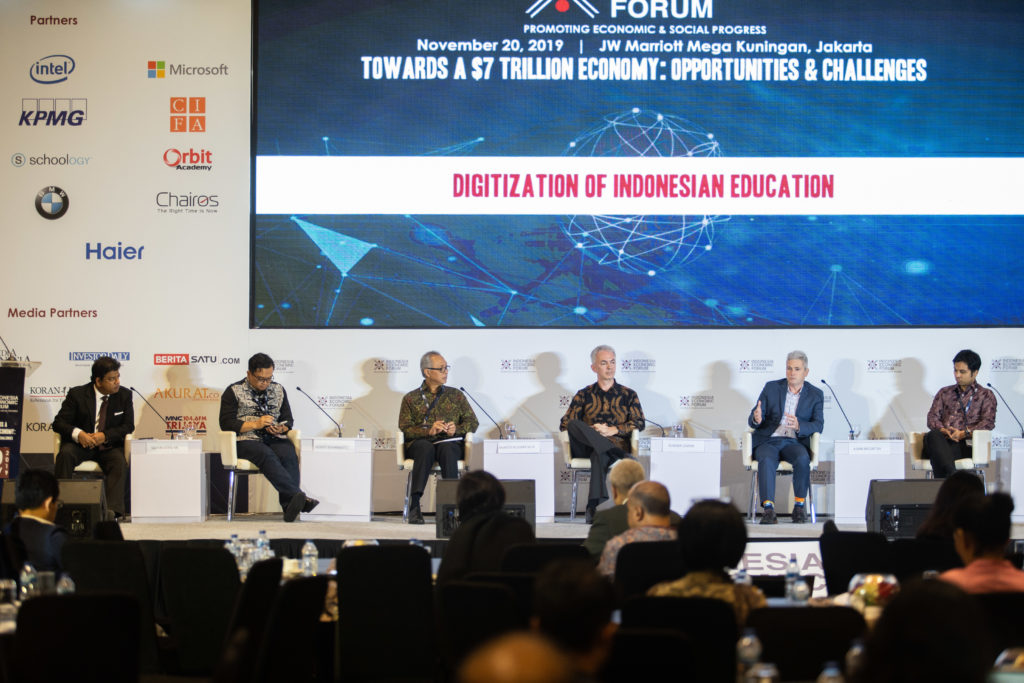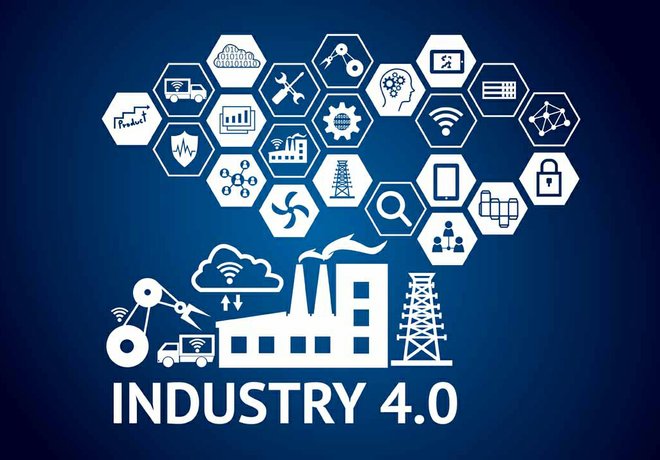6th Annual Indonesia Economic Forum Theme: Towards a $7 Trillion Economy: Opportunities and Challenges Insights from global leaders at the 6th Annual Indonesia Economic Forum 2019
As the world races towards greater adoption of new technologies, Indonesia too is playing catch up. Since the World Economic Forum released its epoch making report on the 4thIndustrial Revolution and how it will impact business, industry, government, civil society and just about every facet of human life, Industry 4.0 has become a catchword for change.
At the 6thAnnual Indonesia Economic Forum on Nov 20th2019, Industry 4.0 and its impact on Indonesia was very much on top of the mind of both speakers and delegates. Although the theme of IEF 2019 was Towards a $7 Trillion Economy: Opportunites and Challenges, undelying theme was the critical question: How does Indonesia achieve its ambition of become a $7 trillion economy?
The answer across the many speakers and panel discussion was clear: greater adoption of new technologies such as AI, data analytics, robotics, coud computing, IoT and machine learning.
Industry 4.0 will undoubtedly impact all sectors and induce changes, for instance, shifting mindsets, embracing technological disruptions, and adopting new business models.
Building Blocks to a Digital Economy

Bambang Brodjonegoro, Minister of Research, Technology, and Higher Education, started the discussion by sharing his vision for the country’s future as a developed nation and Industry 4.0’s role in the next 20 – 25 years. He mentioned that the nation needs to focus on adopting new business models, develop an artificial intelligence national strategy, innovate the manufacturing sector, strengthen the national supply chain, and embrace new technological innovations. He noted several measures that the archipelago can take to become an upper-middle income country and subsequently a developed one.
Indonesia is too dependent on its natural resources and therefore economic activities are heavily skewed towards natural resources, and the same applies for exports and investment. Mr. Brodjonegorosuggested that the nation needed to focus increasing research and development (R&D) activities as well as science and technology. Currently, there are five R&D priorities: food security, the energy sector, competitiveness and sustainability, strengthening the industrial structure, and import substitution by increasing local context. Over the next five years, the challenge is to involve greater participation of the private sector in R&D activities.
The minister also noted three reasons for the nation’s stagnant economic growth: low innovation in the manufacturing sector; low investment quality; and over reliance on advanced technology from other countries.

Ilham A Habibie, Chairman of the National ICT Council & Co-Founder of the Indonesia Education Forum noted that due to the uncertainty of Industry 4.0 in education and employment, an update in the school curriculum and new roles for teachers as starting points. Student preparation should include subjects such as technology literacy, coding, project-based learning (for the benefit it does in shaping the thinking process) and learning soft skills. On the other hand, teachers should adopt an attitude of a mentor or a coach. Classrooms and students might also shrink leading to a high demand in teachers.
Dr. Habibie also highlighted that new technological disruptions will lead to new jobs. He stressed the need for a National Government Chief Information Officer, who could oversea information communication technology (ICT) matters on a presidential level. This role will support the implementation of artificial intelligence, data sets and other similar policies.

Speakers in the fourth panel, with the theme of Digitization of Indonesian Education, agreed that a shift in mindset is needed for educators in the education sector. Starting with the role of teachers and personalized education. Aidan McCarthy, Principle—K12 Digital Transformation and Strategy, Microsoft Corporation shared the same sentiment on teachers as Dr. Habibie. He suggested that they should also adopt a professional mindset, and as such should have relevant experience in the private sector. Teachers need to update their pedagogy and knowledge in order to stay relevant and incorporate technology in their classrooms. Gogot Suharwoto, Head of Pustekkom and Head of Bureau of Planning & International Relations, noted that a survey of 20,000 teachers was done to classify their knowledge in ICT, resulting in 40% on teachers achieving the top level and only 26% on the second level. These results allow him to target which teachers need training.
Rizal Hamzah, CEO Schoology Asia,added that every student is different, and must have a personalized education experience in terms of delivery. He alluded to Big Data as a useful tool for measuring student mastery in terms of not only exams but also attitude, aptitude, grit, interpersonal communication, collaboration, media and information literacy, and social media (and other relevant skills). This tool can also be used to measure schools and teachers.
Not All Smooth Sailing
While the tools are available for transforming the economy, execution is a wholly different challenge. Indonesia’s large size and archipelagic nature makes it difficult to reach every teacher and student. Mr. Suharwoto noted that one solution is having more companies such as Rumah Belajar, an online learning platform designed to provide learning materials and communication between communities. It is being utilized to tackle the issue of teacher training and student learning.
Digital transformation in education is not only tasked to teachers and the government, but also to the private sector. Both Mr. Lemon and Ananto Kusama Seta, Senior Advisor to the Minister of Education on Innovation and Competitiveness, Ministry of Education, emphasized partnerships between private and public actors to discuss what challenges are a priority. Mr Seta mentioned that the current ministry is working on regulations to ease the involvement of the private sector.
The 6thAnnual Indonesia Economic Forum (IEF), a multi-stakeholder platform, aims to bring relevant economic and social issues to the forefront by inviting global thought leaders, business communities, entrepreneurs, senior government officials, chief executive officers of large corporations, and civil society to discuss challenges and strategize towards building a $7 trillion economy by 2045.

